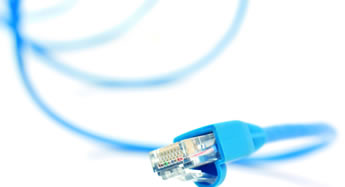Anti Piracy Law back on course
If ISPs had their way, the DEA would not be implemented in its current form at all.
The Digital Economy Act 2010 (DEA) was pushed through Parliament in the dying days of the Labour government. Its most contentious provisions relate to measures ISPs will be required to take against suspected copyright infringers and illegal file sharing sites. Legal and technical issues have combined to delay implementation of the DEA which the Government now acknowledges will not happen before 2012. If ISPs had their way, the DEA would not be implemented in its current form at all.
The obvious tensions exist: rights holders argue that they are sustaining substantial economic damage as a result of unlawful activity on the internet and this could damage creativity and productivity. On the other hand, ISPs argue they are essentially conduits for the flow of information. Their effectiveness and competitiveness relies on minimum regulatory interference, along with minimum responsibility.

Many ISPs feel the Digital Economy Act received insufficient parliamentary scrutiny (not least because it places considerable burdens on them). In March this year, BT and Talk Talk challenged the Act in a judicial review. They were aiming to block the new copyright enforcement regime which could (among other things) force them to slow down and/or block broadband access to customers accused of unlawful downloading. The challenge was based on the contention that the legislation received insufficient parliamentary scrutiny, that it was incompatible with EU law and that it would compromise privacy rights.
On 20 April 2011, Mr Justice Parker gave his long and detailed judgment. In short, the ISPs’ challenge has been unsuccessful. Parker J was not persuaded that the DEA went outside the confines of binding European legislation. He found that the DEA was proportionate and consistent with European law.

BT and TalkTalk argued that the Technical Standards Directive (98/34/EC) requires Member States to communicate to the European Commission and fellow Member States "any draft technical regulation", the "observance of which is compulsory" for ISPs along with a statement of the grounds which make the enactment necessary. Parker J held that it is the Initial Obligations Code (which has not yet been finalised) (the Code) which had to be given to the European Commission and the other European Member States, and not the text of the Act. It is the enactment of the Code (discussed in our piece "Digital Economy Act - A powerful tool for copyright owners?") which gives legal life and real content to the initial obligations. The Code will be notified in due course.
The ISPs also argued that the DEA contravenes Article 15 of the e-Commerce Directive (2000/31/EC) which states that Member States shall not impose a general obligation on providers to monitor the information which they transmit or store. Parker J disagreed. The DEA does not require ISPs to monitor information - the role of the ISP under the DEA is entirely passive. It is the copyright owners who must show that the information transmitted infringed the owners’ rights. The essential function of the ISP is not to investigate facts or circumstances but to identify the wrongdoer.
Equally, Parker J was unconvinced by the ISPs arguments that the DEA does not comply with the Data Protection Directive. While it was common ground that the Initial Obligations Code is likely to require ISPs to process "personal data", the issue was whether the processing of that data was permissible. The processing was likely to be necessary for "the establishment, exercise or defence of legal claims", which is an exception under Article 8(2)(e) of the Directive.
In the meantime, Culture Secretary Jeremy Hunt has also asked Ofcom to review certain sections of the DEA to see whether or not they are 'workable'. Specifically of concern are the DEA’s reserve powers to block websites accused of supporting copyright infringement if initial takedown measures, which require ISPs to notify rights’ infringers that they are infringing, do not prove sufficiently successful.

Site blocking measures would also require secondary legislation to implement them and the review will inform the Government as to whether and how to proceed. The Ofcom review will concentrate on whether or not ISPs have the technical ability to block access to sites; how effective a block would be; and whether it would be possible to block specific parts of a website.
While the DEA is back on course for implementation, we are still a long way off. Once the Code and secondary legislation has been drafted, the Government will need to hand it over to the European Commission and our fellow Member States for a closer look, along with the text of the DEA (so that they can "properly set the Code in its full legislative context." [paragraph 88 of the judgment]. If either the Commission or any of the Member States have concerns over the text of the Code, Ofcom and the Government could find themselves going back to the drawing board.
If you have any questions on this article please contact us.

While the Digital Economy Act is back on track, implementation could still be a long way off.

